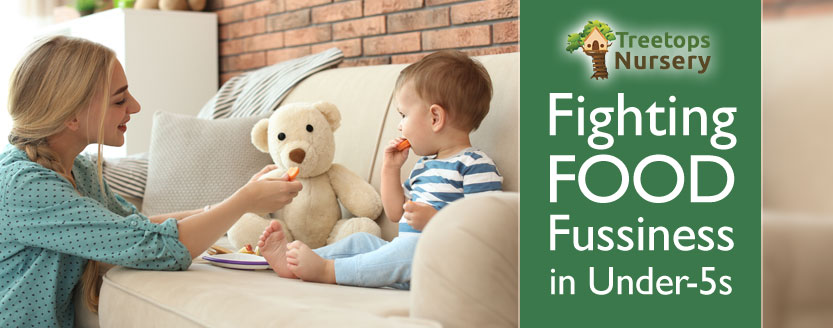
Many parents will be all-too-familiar with how fussy toddlers can be when it comes to food. Some children will even avoid certain foods, absolutely refusing to try them, based solely on how they look. This can be infuriating! In the extreme, it can also potentially pose a risk to the healthy balance of a child’s diet.
Give peas a chance!
Many adults, myself included, will recall that we were just the same at some point during childhood. Later on, we may realise how delicious something really is, even if we thought we didn’t like it when we were young. I recall believing that peas were incredibly dull and should be avoided at all costs, for example. I now believe them to be amongst the tastiest vegetables on the planet! Nothing material has really changed about peas, so it’s my perception of them that has changed; I simply needed to give them a chance.
Acquired tastes
Other foods can become an ‘acquired taste’. For example, many youngsters initially perceive olives as being quite disgusting. Later on as adults, however, many of the same people end up adoring them. Sometimes, it’s just a case of mentioning this weird facet of human nature to your toddler. Trying to reason – and empathise – with them in this way may well register with them eventually. Despite appearances, children often take such messages in, even though they might refuse some foods, point blank, at first. This eventual acceptance often gradually occurs as they become more mature in mind as well as in body.
Food refusal is normal, so don’t stress
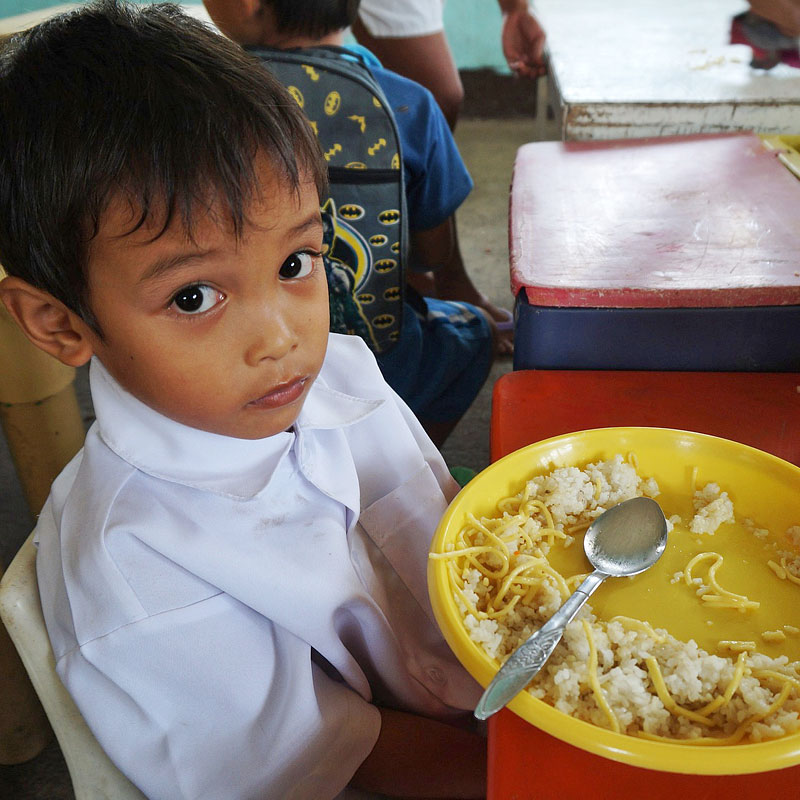 If your child’s refusal to eat certain foods is making you stressed, take a moment to realise that this is perfectly normal. Indeed, many toddlers go through such a phase in their earliest years. If they’ve recently been breastfeeding, they will have become accustomed to a sweet-tasting diet. When they are weaned onto solids and suddenly become mobile, it’s natural for them to be wary of eating just anything — it’s so new to them. In fact, refusing some foods is an instinctive survival mechanism. It’ll take time for them to become accustomed to new tastes and textures.
If your child’s refusal to eat certain foods is making you stressed, take a moment to realise that this is perfectly normal. Indeed, many toddlers go through such a phase in their earliest years. If they’ve recently been breastfeeding, they will have become accustomed to a sweet-tasting diet. When they are weaned onto solids and suddenly become mobile, it’s natural for them to be wary of eating just anything — it’s so new to them. In fact, refusing some foods is an instinctive survival mechanism. It’ll take time for them to become accustomed to new tastes and textures.
“If your child gives you a resounding no, try, try and try again.”
What’s more, it’s known that it can take about 10 to 15 instances of exposure to a particular food before many young children will accept it. So, if your child gives you a resounding no, it’s really best for both of you to try, try and try again. After all, it would be such a shame for them to miss out on something delicious and nutritional for the rest of their lives.
What else can parents do?
As well as the straight forward perseverance approach outlined above, there are a number of things that parents and carers can do to encourage preschoolers to eat a more varied diet and to give new food types a try.
• Food bridges
Food ‘bridges‘ are a subtle trick where you add different foods to those that your child already enjoys. So, if your child loves mashed potato, for example, perhaps try adding a little grated cheese on top or mixed in with it. If they like roasted potatoes or ham, try adding a little cooked apple. A little bit at first may fly under their radar and get them used to the taste before increasing the amount over time.
“We eat with our eyes first.”
• Changing appearance
Similarly, changing the appearance of food is a highly useful tool to fight fussy eating. It is said that we eat with our eyes first, so try and make meals look as appealing as possible. For example, you can harness the rainbow colours of fruit and vegetables and the different shapes and sizes of foods. You can even make pictures with food on the child’s plate or cut food into shapes to make it more appealing. These are great ways to get children to become engaged with their food, to make food fun and to get children to become positive about it.
• Get sneaky
Maybe if a certain food type isn’t liked, try hiding it. For example, you could puree a particular vegetable that they don’t like. Once you’ve done that, you could add it as part of a pasta sauce, for example, or as a dip, topper or garnish. This is a great way of children building up a taste for it without even realising.
• Get children involved
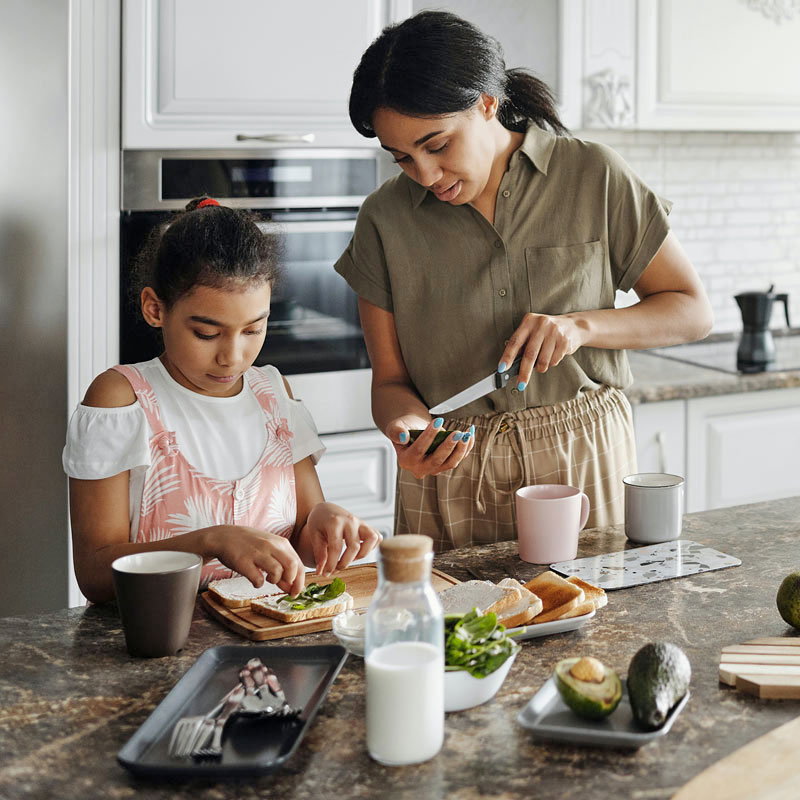 Involving children in planning meals, shopping for food and even preparing the food can encourage them to eat more food types. For example, they could help when picking vegetables or have a say in how food is displayed on the plate. You’ll also be teaching them new things along the way.
Involving children in planning meals, shopping for food and even preparing the food can encourage them to eat more food types. For example, they could help when picking vegetables or have a say in how food is displayed on the plate. You’ll also be teaching them new things along the way.
• Make it fun
There are a great many ways in which parents and childcare providers can make eating fun.
- Choosing plates, bowls and cutlery that have fun designs is a great way to start, particularly if you allow the child to have a say in the choice. Perhaps there is a picture on the bottom of the plate that is only visible once the food has been eaten. Or perhaps their spoon or fork has a design on it that is shaped like an animal that the child particularly loves.
- You can also theme meals. The child could perhaps pretend to be a character from their favourite book or film. Then, the food can be themed to suit. For example, a space rocket shaped from food could be given to budding astronauts. Or maybe use a Treasure Island theme for all those pirates out there. It’s amazing what fun you and your child can have turning vegetables like sweet corn and peas into pieces of “treasure”. Rainbows are another popular theme and here you can use the different coloured fruit and vegetables to create your masterpiece.
- The youngest children will, of course, always enjoy the tried and tested ‘here comes the train’ approach (“Choo Choo!”). Some may enjoy a similar approach with an aeroplane coming in to land. This type of thing can easily be turned into an enjoyable, playful game.
• Positivity & a gentle nudge
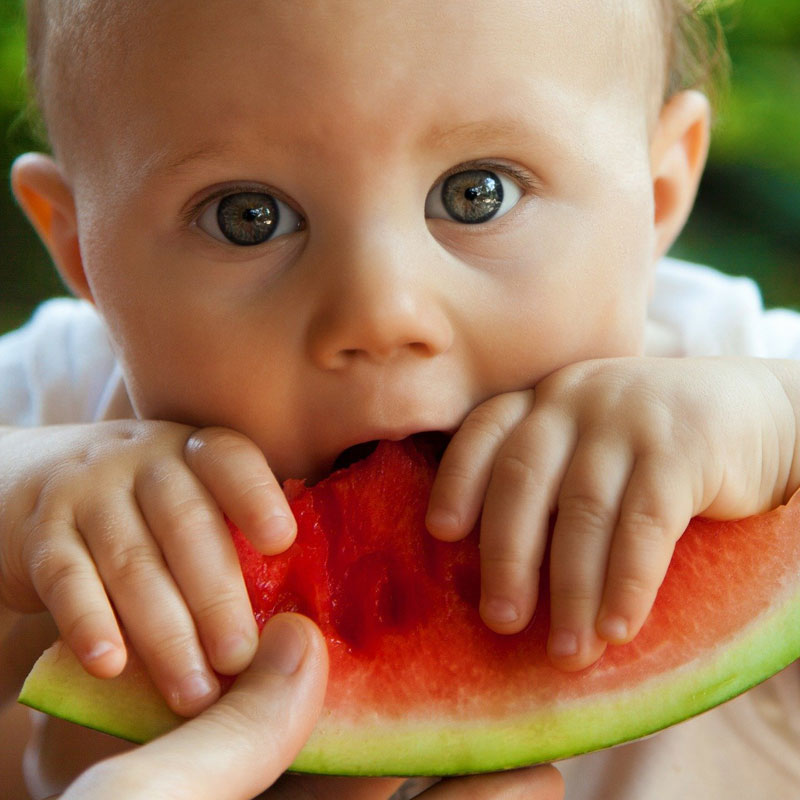 Using positive phases like yummy, tasty and so good when eating will help to build positivity around food. Talking about how food was prepared or how an item of fruit or vegetable grew in the garden may spark an extra level of interest in the child. Making food sound generally positive is a good approach. Remind the child how good the food will make them feel, how it will recharge them and make them energised and ready for the day’s tasks. For example, you could explain how they will have lots of energy for the swings, or park or when playing ball etc.
Using positive phases like yummy, tasty and so good when eating will help to build positivity around food. Talking about how food was prepared or how an item of fruit or vegetable grew in the garden may spark an extra level of interest in the child. Making food sound generally positive is a good approach. Remind the child how good the food will make them feel, how it will recharge them and make them energised and ready for the day’s tasks. For example, you could explain how they will have lots of energy for the swings, or park or when playing ball etc.
• Reward them
Rewarding children for trying new foods and eating healthy options is a great way to encourage them. This is the ‘carrot’ rather than the ‘stick’ approach (remember; you want to build positivity around food, not negativity, so reward them when they get it right, rather than punishing them when they refuse food). Reward charts with set food goals can be a great way of approaching this if the child is being particularly fussy in their eating. For example, your child could be rewarded for trying new foods or for clearing their plate. Rewards will make food fun and positive. The choice of reward can be anything that you think may sway your child, for example a trip to the park, their favourite dessert or a small gift perhaps.
• Be a good role model
Infant creatures across the world learn about food from their parents — and humans are no different. So, let your little one see you eating different foods yourself, including any they’re refusing. Being a good role model will help your child to see that new foods are safe — and even enjoyable. Sometimes, you just have to show them! Also look out for their favourite TV stars, or even best friends, eating foods that they are currently refusing — good role models can make a huge difference. However, never forget that it can take multiple attempts, so you need to remember to be patient and not to force it.
Healthy eating at Treetops Nursery
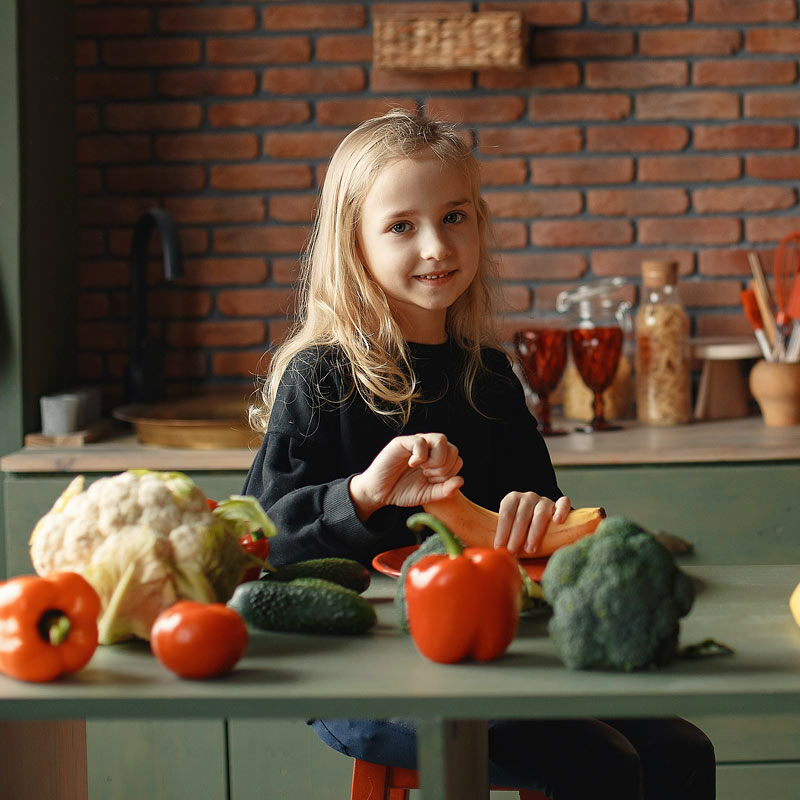 We confess that we’ve been known to employ a few of the tips above at the nursery! Healthy eating is very much in our DNA at Treetops Nursery in Willesden, NW10, so we do all we can to ensure that our under-fives are getting the right sized portions, healthy food and a good dietary balance. Our in-house chef prepares tasty meals using only the best, most fresh ingredients. All special dietary needs are catered for, including vegetarian and vegan options when required. Children attending all day will receive three high quality meals plus a snack in the morning and another in the afternoon. Drinking water is available on tap all day. All food and drink is covered within our standard fees. Learn more about our approach to nutrition, healthy eating and see some menu examples here.
We confess that we’ve been known to employ a few of the tips above at the nursery! Healthy eating is very much in our DNA at Treetops Nursery in Willesden, NW10, so we do all we can to ensure that our under-fives are getting the right sized portions, healthy food and a good dietary balance. Our in-house chef prepares tasty meals using only the best, most fresh ingredients. All special dietary needs are catered for, including vegetarian and vegan options when required. Children attending all day will receive three high quality meals plus a snack in the morning and another in the afternoon. Drinking water is available on tap all day. All food and drink is covered within our standard fees. Learn more about our approach to nutrition, healthy eating and see some menu examples here.
Looking for a nursery place in Willesden, London NW10?
If you are looking for a nursery place for your baby or toddler in Willesden, Willesden Green, Harlesden or Kensal Green, call us on 020 8963 1259. Alternatively, book a nursery visit here or email us here. We have places for under-fives available at time or writing and will be happy to welcome you to the setting and to answer any questions.


 Research has repeatedly proved that parents have an enormous impact on their children’s education, particularly if they’re involved right from the early years. That impact can be hugely positive if the parents get it right. In this article, we explore the many benefits of parental involvement in children’s education, how parents can support their children from nursery to university, improve their success, maximise their personal and career potentials and thereby give children the very best start in life. That is priceless.
Research has repeatedly proved that parents have an enormous impact on their children’s education, particularly if they’re involved right from the early years. That impact can be hugely positive if the parents get it right. In this article, we explore the many benefits of parental involvement in children’s education, how parents can support their children from nursery to university, improve their success, maximise their personal and career potentials and thereby give children the very best start in life. That is priceless. Benefits for the child include:
Benefits for the child include: Better prospects:
Better prospects: Modern curriculum-based text books are extremely good these days, so many parents will be able to pick even unfamiliar topics up and guide a child if they’ve not been able to find their way on a particular homework task or piece of research.
Modern curriculum-based text books are extremely good these days, so many parents will be able to pick even unfamiliar topics up and guide a child if they’ve not been able to find their way on a particular homework task or piece of research. Like most nurseries and educational settings, Treetops Nursery hosts parent evenings which allow nursery staff and parents to discuss the child’s learning and development in detail. It’s also a great opportunity to make sure all parents are up to date on everything happening at the nursery, in particular in regard to their own children. Parent evenings typically happen twice a year but, at Treetops, we’re always available to speak to parents, so please don’t feel you have to wait until a parent evening to discuss anything about your child.
Like most nurseries and educational settings, Treetops Nursery hosts parent evenings which allow nursery staff and parents to discuss the child’s learning and development in detail. It’s also a great opportunity to make sure all parents are up to date on everything happening at the nursery, in particular in regard to their own children. Parent evenings typically happen twice a year but, at Treetops, we’re always available to speak to parents, so please don’t feel you have to wait until a parent evening to discuss anything about your child.